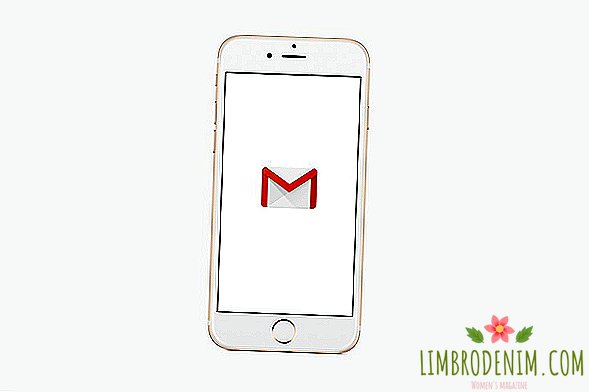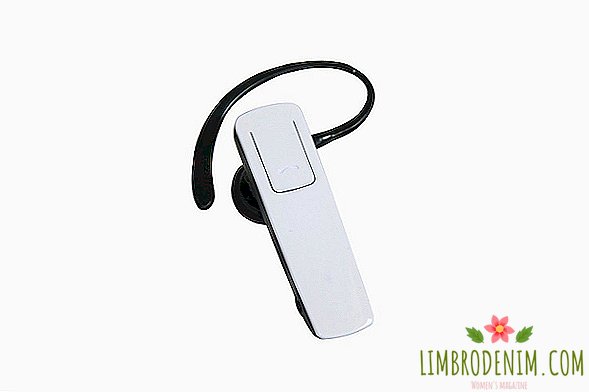Temporarily unavailable: Why and how to call people in the era of instant messengers
Some twenty years ago the phrase "Dial me when you drive up to the cottage" would cause at least bewilderment. Smartphones have become a natural and indispensable part of our movements: now we can be reached everywhere and this is a big plus. But this is also a minus - now we can be reached everywhere. We began to treat the issues of personal space and business communication differently: some people completely stopped using the telephone for calls, considering them to be indecent, archaic and inappropriate.
Telephones have changed a lot in our lives and, among other things, allowed us to stop talking about them in the end. Just a few years ago, the question "Is it polite to call a colleague or business partner?" just did not arise. Here is his number, you can call from ten to six, if he doesn’t pick up the phone, it means he went to dinner, will return to the workplace and call back when he heard a message on the answering machine. And if we have not a work number, but a mobile one, is it possible to call then? And if he works from home and he has a small child? What if he is in a meeting? Maybe it is better to first send SMS? Or even write on Twitter? Today, new telephone etiquette is born, and the rules concern not only phones, but also instant messengers, e-mail and much more.
Voice or text?
Business Insider writer and editor Nicholas Carlson admits that he reads most of the emails through the app on his smartphone and goes like this: he gives a very quick and short answer to 5% of emails; if the sender is very important, writes an expanded response letter (1% of cases), sends a message to the archive without reading it (74% of cases), gives himself time, usually a day or two, to think about the answer (20% of cases). That is, e-mail is, above all, slow. Any communication channel that involves many letters is not too fast.
But what if you need to find out the solution of your interlocutor right now? Can I dial a number? Business consultant Cyrus Stoller believes that, since everyone now uses smartphones, we need to expand our communication channels, but use them in accordance with our needs. He says: "Do you want to get an answer from me in thirty minutes - make a phone call. In two hours - write an SMS. Within a day - send a message via an instant messenger. In a day or later - write an e-mail." On the phone, he says the following: “When dialing my number, you can be one hundred percent sure that I will understand exactly what you want to say to me, and that I received your message. If you hesitate to tear me away from what I am doing, maybe it's not so important. "
When definitely not to call
Are there any rules when you can and when you can’t call? In fact, they are being formed right now and, as at any transitional stage, they are not yet fixed. A more or less well-established rule is: if this is not a very important and urgent conversation, then it is better to write first. But there are cases when definitely not worth dialing the number of a person on business issues. For example, if you received a phone number from a friend (colleague) and the person who gave it to you did not specify whether a stranger can call freely - and the number of the person you need is not publicly available. In this case, it is better to check with the source whether it is possible to refer to it.
Do not call if the clock is more than seven in the evening. Yes, it is possible that this is childhood time for you, and you just started to get involved in the workflow, but many people at seven in the evening prefer to throw the working questions out of their heads to return to them the next morning.
Do not call if the question that interests you requires thinking. Would you like to work for our company? How much are you willing to pay for our services? Answers to these questions are difficult to give in a hurry, so give the person time to think. E-mail is best suited for this purpose.
Do not use the phone if your colleague or partner is millenial. Young employees often admit that they perceive a sudden call without prior email as an invasion of their personal space, and many large companies have completely abandoned phones at their employees' workplaces.
When is better to use the phone
Okay, there are times when you can't do without a phone. For example, if you need to reach the state structure. Something tells you that if you tweet them, you’ll have to wait a long time for an answer. A very long time.
Call, if you have a very urgent and important matter, and you are not sure that the person responds quickly to messages. Or if your colleague himself said that the telephone for him is the most preferred communication channel. In an ideal world, everything is like this - people meet and say to each other: "My name is Alexander, and I love to be called and not posted to Facebook." Or vice versa: "I am Tatiana, I hate talking on the phone with strangers." In addition, it is worth calling if you have agreed to call at a certain time.
What to say?
Very often, having phoned to the subscriber, we get lost, start to get confused in words and even forget what we wanted to say. To avoid this, it is advisable to keep in mind a little memo. First, introduce yourself. When a person first calls to discuss a business question, he often forgets to give his name or company where he works, leaving the interlocutor to be tormented by conjectures. Just say: "Good afternoon, my name is Ekaterina Ivanova, I am from the company ..." If you have already met before and are not sure that the person remembered your name, tell us exactly where you crossed paths. Something like: "Good afternoon, this is Marina, we met with you at a business breakfast for dog races."
Secondly, specify whether it is convenient to speak to your interlocutor: he may be at a conference, at a business meeting, in the bathroom, after all. After you have introduced yourself and are convinced that you are ready to listen, you can get to the point. Honestly, forget polite questions like "How is your dog?" If you are not a vet, of course.
How to say?
If you really need to like the person on the other end of the cell tower, use very simple, but effective techniques for this. To begin, smile and sit like that throughout the conversation, even if your jaw gets tired. You will be surprised how much everything will change after that - a smile is always felt in a telephone conversation.
The second important technique - try to fully concentrate on the conversation. If Julius Caesar were in your place, he would have managed to write several letters, open an IP and agree on a business breakfast with a colleague. And I would finally convince the interlocutor that he is ill-mannered boor, because people always feel that you are not paying full attention to them. Do not play solitaire, do not write an email, do not ask a colleague to buy you coffee - just devote yourself to the conversation for just a few minutes.
Everyone knows about the third method, but for some reason it is rarely used. Contact the person by name. If you call to any organization, and the mechanical voice says to you: “Hello, Elena — what can I help you with”, this means that the person on the phone has not yet woken up, is immersed in his thoughts and is not listening to you. Say: "Hello, Elena, and my name is Anna," and you will see that it will work, like a kiss on Snow White - the interlocutor will come to life.

E-mail and instant messengers gave people who do not like to talk on the phone (and there are very, very many) the opportunity to avoid it. And the phone calls themselves have somewhat discredited themselves - a lot of people no longer pick up the phone if an unfamiliar phone number is reflected on the screen: what if suddenly an advertisement?
Yes, to get to us is now much easier than twenty years ago. Even easier than a couple of years ago, because the number of communication channels is constantly increasing: WhatsApp, Telegram, Skype, Viber, Slack ... Does not respond to messages in the Facebook messenger? We will write to him on Twitter, call WhatsApp - and so on until the smartphone of the unfortunate person breaks from the vibration and does not give up his nerves. Together with an increase in the number of communication channels, the etiquette of their use also changes. Once it was difficult to imagine that you would write to a person on a business issue on Facebook, because social networks were exclusively personal space. Today it is difficult to imagine that you will take and call a stranger like this if you have, say, his email address.
The rules are born right now. Maybe in just a couple of years we will have an accurate list of instant messengers, mandatory for each type of business or position, but so far this list is not there, we are moving intuitively. Telephone conversations still have not disappeared, but they have become much less - not because they are bad or inconvenient, but because people have a choice. And if you can not stand talking on the phone, maybe now is the time to indicate on your business card Skype, Telegram or Twitter?
Photo: Aliexpress







